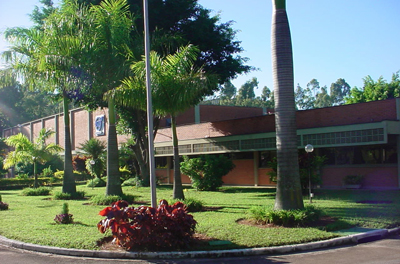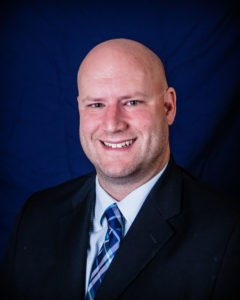Communication Breakdown--Overcoming Cultural and Language Barriers in the Global Gear Market
Matthew Jaster, Associate Editor
If you’ve read any business publications lately, chances are you’ve seen an article or two covering language and cultural barriers in the global marketplace. Buzzwords like “globalization” and “global supply chain” frequently come up in discussions on training, networking and economic growth. At least once a week, a headline triumphantly declares a company “lost in translation” due to language or cultural missteps.
According to www.vistaworld.com, the English language remains the most popular when conducting business abroad. It’s the most widely published language, it has the most words and it’s spoken by the most non-native speakers.
Many business professionals, however, are learning it will take more than the English language to remain competitive in the global market. While attendance for Spanish, French and German language courses has risen here in the United States, an increasing number of business professionals are also learning Arabic, Japanese, Russian and Chinese Mandarin.
As the manufacturing community gains prominence in countries like China, India and Korea, many are looking toward Asia for new business opportunities. Companies are working daily with partners, clients and customers around the world on joint business ventures, marketing agreements and sales opportunities.
Whether selling a grinding machine, marketing a software program or manufacturing components, companies would benefit from knowing the role language and cultural barriers play in today’s business economy.
Recruiting from the local talent pool. Companies like Gleason, Star-SU, Gear World and Ticona find that establishing localized sales offices or hiring commissioned representatives helps to eliminate potential language and cultural barriers. It’s a simple solution, one that avoids getting caught in a situation where translation or alternative business practices cause confusion.

To remain competitive globally, Ticona has factories around the world like this facility in Kelsterbach, Germany.
“We have sales directors at our technology centers in most of our major markets,” says Kelvin Harbun, vice president of Asian sales at Gleason. “This helps to establish sales and support offices in all the major industrial regions. Typically, our sales and service offices are headed by representatives that know the environment, especially in countries like China and Japan, where knowing the culture is just as important as the language.”
Gleason ships products to more than 40 countries around the world. According to Harbun, 75 percent of their products worldwide are shipped out of the U.S. market. He’s fully aware of the challenges presented by working across several continents, but he can’t imagine Gleason not doing this kind of international business on a daily basis.
“If we don’t have a sales office in the country, we have commissioned representatives in place to work with our customers,” Harbun says. “These reps have been working for Gleason for years in areas like Brazil, Argentina and Korea.”
Similar concepts are carried out at Star-SU. The company uses English as their business language, but will speak and correspond in German, Italian, Spanish, Portuguese and Chinese if necessary. Brian Cluff, vice president at Star-SU, says business practices differ from country to country, so their system is tailored to support experienced professionals from each and every culture.

Star-SU’s facility in Jundiai, Brazil.
“We do 50 percent of our machine tool business with companies overseas, doing business in Russia, Poland, all of the European Union, India, China, Japan, Korea, Brazil and Argentina,” Cluff says. “Cultural differences are addressed by in-country personnel who are experienced with doing business in their native country.”
Gear World S.p.A. is a manufacturing project launched by the Carraro Group in 2007. Headquartered in Padova, Italy, the organization manufactures cut-metal bevel and cylindrical gears, ring gears, powder metal gears and structural parts. The company has four plants in Italy and individual plants in the United States, China, Argentina and India.
Gear World utilizes local sales managers at their overseas plants and uses English internally for manufacturing, quality and technical issues. Any cultural differences are eliminated due to the “corporate culture” the organization has adopted over the years.
“Our corporate managers have a long, international experience; therefore, the understanding with the customers across the globe is always certain,” says Dr. Ing. A. Scanavini, vice president of business development at Gear World. “We also pay close attention to communication in order to create a global presence with our customers.”
Ticona Engineering Polymers employs 2,000 individuals at facilities in the United States, Germany, Brazil and throughout Asia. In order to accommodate their global clients, the company provides the right people with the pertinent language skills.
When Ticona collaborates on a project, the company provides the same brand experience whether it is in Frankfurt, Detroit or Shanghai. By insisting each facility adheres to the same performance characteristics and specifications, the company eliminates possible cultural or language hurdles.
While larger organizations have the time, resources and manpower to address these types of issues, smaller companies need a more creative approach.
The right people, the necessary skills. In the case of KISSsoft AG in Switzerland, communication is imperative in servicing its software to a global customer base. As a smaller organization, the company originally hired a single employee to address language issues in-house.

The international sales team at KISSsoft stands in front of the main offi ce in Hombrechtikon, Switzerland.
“It is important for us to have all the documentation and the software looked after and to have someone organize it all,” says Dr. Stefan Beermann, vice president at KISSsoft. “The problem with translation is that you start from scratch again and again. As soon as you change a small percentage of the source text, someone has to translate it all. It doesn’t matter if only two words or a complete sentence is changed; the translation effort is still the same.”
As KISSsoft has expanded its customer base, the company has been able to hire a network of translators to address other language issues. “We usually communicate with our customers in English, the current lingua franca,” Beermann says. “Our business is very close to a consulting firm, so communication is the core of everything we do. Most of us here are in touch with several different customers each day by e-mail or by phone focusing on their demands and talking about language issues that have come up.”

KISSsoft communicates daily with its global customer base from its main office in Hombrechtikon, Switzerland.
Unfortunately, these language and cultural obstacles can even occur in one’s own backyard. Marswell Engineering Ltd., a small manufacturing company in Hong Kong, provides injection molding and small module plastic gears and gearboxes. More than 80 percent of Marswell’s customers come from companies overseas.
“There’s not only a significant difference between the West and the East, but also within the south and east Asian countries like China, Japan and India,” says Wing Lam, sales executive at Marswell.
Lam says the diet and religious habits of Marswell’s customers are just as important as the terms of a business deal. Food and drink, for instance, are an important first step for several cultures before business can even begin. Many Asian cultures believe a person’s family and religious background help determine their business practices. When dealing specifically with countries like China, Japan and India, Lam says Marswell employees take the extra steps necessary to make their customers comfortable.
“It helps to know the background of our customers,” Lam says. “If we can provide a close and friendly relationship, the customer feels mutually respected.”
In order to continue to grow in the global market, Marswell plans to improve their sales and service techniques and become more flexible. While they use English to communicate with overseas customers, they see languages such as French, Japanese and Mandarin as vital to the front line of the organization.
It pays to do your homework. Regardless of the size and scope of the operation, some research can go a long way in establishing international relationships. Learning as much as you can about the traditions, beliefs and business practices of the host country is a great advantage.
The website www.communicaid.com, a global communication/consultant firm, has detailed information on conducting business in India. The website recommends companies make appointments at least a month in advance with Indian counterparts, as the culture appreciates punctuality and scheduled appointments. Deadlines should not be rushed or aggressive, as Indian culture sees this as rude and disrespectful. Final decisions rest with the highest ranking executives; therefore maintaining strong relationships with senior executives is essential.
In India, a cultural disagreement is very rarely expressed directly, and the word “no” is avoided if at all possible. Negotiations will not begin until a well-established relationship is in place. Meetings begin with small talk and normally involve personal questions as a way of building rapport between the individuals involved.
Titles are a very important part of business etiquette, and the website recommends using professional titles such as “Professor” or “Doctor” at all times, if the person does not have a title be sure to use “Mr.”, “Mrs.” or “Miss.” Above all else, the website stresses the importance of sincerity and honesty, traits sometimes overlooked here in America when conducting business.
In the Chinese market, language remains a vital part of communication between both parties. Xiaoqing Diana Lin, associate professor of history at Indiana University Northwest, with an expertise in Asian studies, says more and more Chinese speak fluent, technical English, which helps facilitate communication. More Americans study Chinese in China with the explicit purpose of finding a job. (Editor’s Note: Please see our feature on the Chinese gear market on page 30 for additional information.)
Lin believes American and Chinese companies can benefit greatly by doing some research into what kind of criteria, both explicit and implicit, the companies are using for potential business deals.
“Americans are used to legal contracts and work by the book, while Chinese are used to tacit or oral agreements rather than fixed, written agreements,” she says.
Lin suggests some know-how on the business practices and cultural traditions of the company might be beneficial moving the relationship forward.
“On the part of the Chinese, they should be persuaded to follow established rules and guidelines in order to continue working with the United States and Europe. For Americans, helps to be immersed in Chinese culture, hold regular meetings with Chinese staff; learn a little bit of the language and be open minded,” Lin says.
Some knowledge of a country’s language and cultural background can go a long way in establishing relationships that will thrive in this new, borderless economy. While it’s not the only role, Lin believes it’s nice to have some insight moving forward.
“In general, culture and language play a very important role in business because they often provide the intuition to sense whether the business relationship is moving in the right direction. Culture shocks, rather than language gaps, are more difficult to overcome.”
For more information:
Gear World S.p.A.
Via Lussemburgo 25/27
35127 Padova Italy
Phone: +(39) 049 8700 430
Fax:+(39) 049 761538
www.gear-world.com
Gleason Corporation
1000 University Avenue
Rochester, NY 14692
Phone: (585) 473-1000
Fax: (585) 461-4348
www.gleason.com
KISSsoft AG
Uetzikon 4
CH-8634 Hombrechtikon
Switzerland
Phone: +(41) 55 254 20 50
Fax: +(41) 55 254 20 51
www.kisssoft.ch
Marswell Engineering Ltd.
2/F, Block C
Wang Yip Centre
Wang Yip Street East
Yuen Long, New Territories
Hong Kong 852
www.marswell.com
Star-SU LLC
5200 Prairie Stone Parkway
Hoffman Estates, IL 60192
Phone: (847) 649-1450
Fax: (847) 649-0112
www.star-su.com
Ticona Engineering Polymers
8040 Dixie Highway
Florence, KY 41042
Phone: (800) 526-4960
Fax: (859) 372-3244
www.ticona.com







